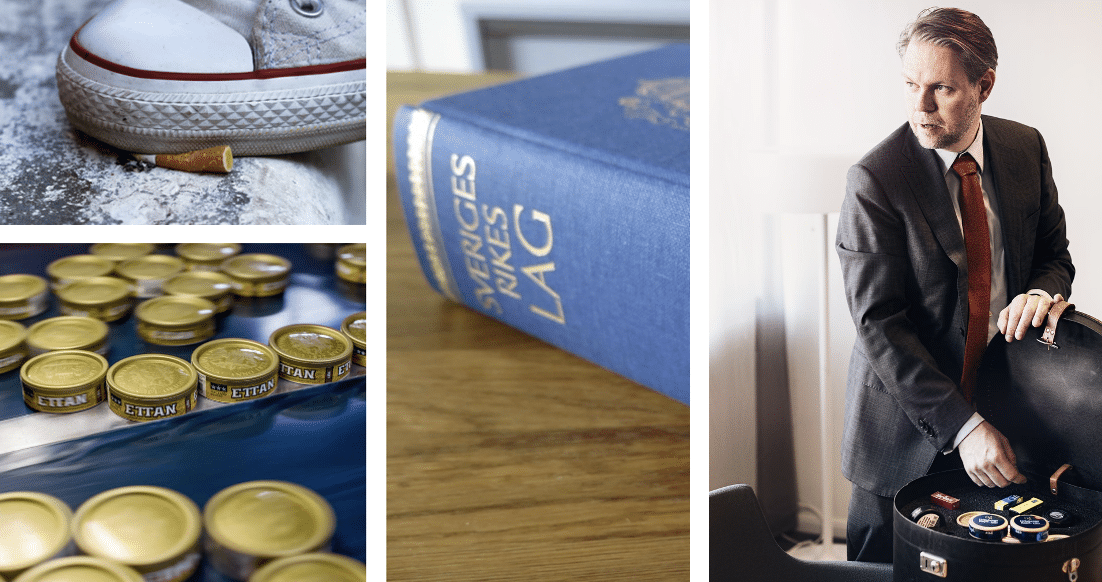
Why you should NOT equate snus with cigarettes: 3 arguments
Despite the huge differences in health risks between smoking and snus, there are those who still believe that all tobacco use should be treated equally when shaping policy. Below are a few arguments for why it’s wrong to equate snus with cigarettes and treat all tobacco equally.
In 2021, Sweden is set to update its ANDTS strategy, a five-year strategy outlining how the government should manage policies governing a number of vices: alcohol, narcotics, doping, tobacco and gaming.
The current strategy has been in place since 2016 and when it comes to alcohol and narcotics, the goals of the strategy are governed by harm reduction. In both areas, the strategy recommends policies that reduce the harm to individuals and society caused by alcohol and drugs.
However, the strategy diverges when it comes to tobacco. Rather than extending the harm reduction approach, Sweden’s strategy calls for minimizing all use.
The strategy treats all forms of tobacco consumption equally, despite the large differences in health risks. The policy states that “tobacco use should be reduced”, which means that cigarettes (where estimates of the number of deaths per year vary from 6,000 to 12,000 per year) and snus (where the authorities do not keep any statistics and therefore have no figures ) are seen as equally harmful.
That this is not in line with scientific evidence is obvious, but it begs the question as to why the policy for alcohol is about reducing harm and the policy for drugs is about reducing harm, but that the aim of tobacco policy does NOT aim to reduce harm.
Why equate cigarettes with snus?
As most people know, Sweden is the only country in the EU where snus is legal and Swedish men also have by far the lowest risk of suffering from tobacco-related diseases. In practice, the Swedish people have on their own actively chosen to reduce harm from tobacco use but choosing a less harmful alternative – snus. Yet have at the same time the state, politicians, and public authorities have been against them.
What, then, are the reasons for equating cigarettes and snus?
Here we list several recurring claims in the tobacco harm reduction debate and why they are not convincing:
1) All tobacco is addictive and it’s harder to quit snus
This argument completely ignores the difference in health risks between smoking and snus. It is true that snus also contains nicotine, which many people find enjoyable and can be addictive.
When it comes to quitting nicotine, personal motivation is a strong factor and it is of course easier to quit smoking, given the risks, then it is to quit snus, given that the risks are so small for anyone who is not a minor, pregnant or has heart disease. Thus claims that snus is harder to quit than cigarettes comes down to a lack of motivation rather than a scientifically proven cause. Quite simply, people’s motivation to quit smoking is higher because smoking kills, while snus doesn’t.
2) Children and young people must be protected from all forms of tobacco and nicotine
Yes, there is an age limit of 18 years to buy tobacco. If you are not of legal age, you also have no right to legally purchase cigarettes or snus. Completely preventing minors’ curiosity about adult behaviours, however, is difficult to combine with an open and free society. However, age limits for purchase are reasonable and provide an acceptable degree of protection. Minimising minors’ access to nicotine and tobacco via age limits is one thing, but it’s disingenuous to introduce additional measures that restrict access by adults by using the protection of children as a pretext.
3) The EU restricts Sweden from treating snus differently
This statement is based on the fact that it would be a barrier to trade if Sweden had different rules for cigarettes and snus. But the argument falls on two important principles. The first is that Sweden’s accession agreement with the EU clearly states that snus in Sweden is regulated in Sweden and not in Brussels.
The second is that individual Member States have the right to regulate products if they affect health and the environment. Why wouldn’t Sweden want to continue to be the EU Member State with the lowest frequency of lung cancer? And why would the EU want to see that figure rise?
It’s worth remember that if the EU didn’t have a huge trade barrier from the outset in the form of the ban on snus, the issue would not have this peculiar character. That Sweden’s exception to the EU’s ban on snus would in any way be threatened by Sweden changing wording in its national public health strategy, for example by comparing the wording for tobacco with that which already exists for alcohol, makes no sense.




